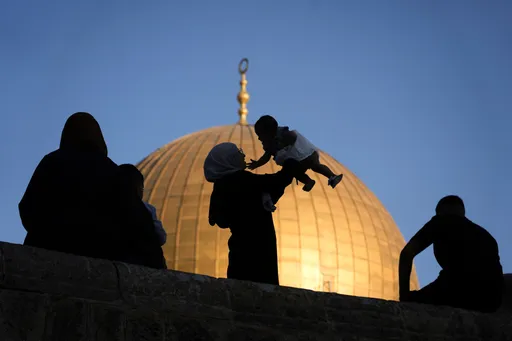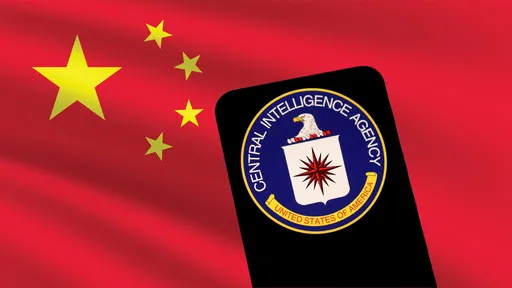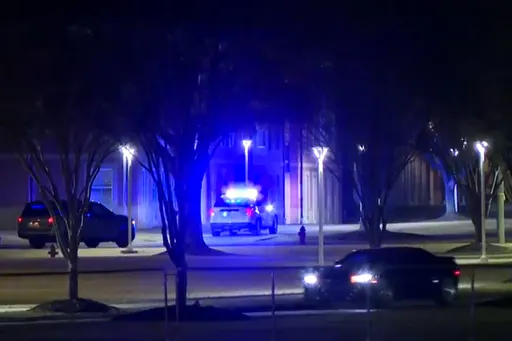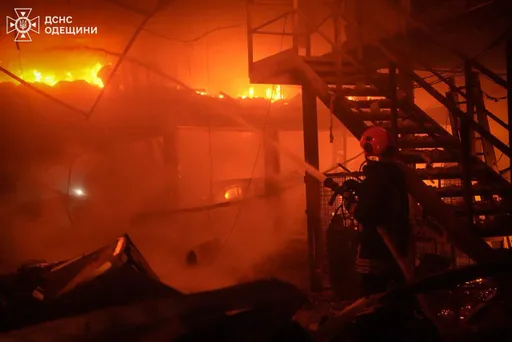On September 8, addressing the laity on the occasion of the Eight day lent of Mary, Mar Joseph Kallarangatt, Bishop of Pala, a town in the southern Indian state of Kerala, claimed a section of Muslims were using “love jihad” and “narcotic jihad” to lure Christians to convert to Islam.
Reading his circular, Pala diocese of the Syro-Malabar Church, one of the largest Christian denominations in Kerala, warned against socialising with Muslims, effectively aligning with the views of Hindu nationalist groups.
Upset by the hate speech, Muslim groups demanded legal action for inflicting communal enmity. But the Kerala state government, led by the Left Democratic Front (LDF), had a “cold reaction,” hurting Muslim sentiments.
“It was highly irresponsible,” says Abdussamad Pookottur, leader of Samastha Kerala Jamiyyathul Ulema, the largest Muslim body in Kerala.
“The government failed to take measures to keep such people accountable. This will divide people,” Pookottur told TRT World.
Amidst the crisis, Kerala Cooperation Minister, V N Vasavan, met the Pala bishop and lauded him for his “scholarship”. The communist leader further branded protesters against the bishop as “terrorists”.
Kerala Chief Minister, Pinarayi Vijayan, also wanted the controversy suppressed and stated no legal proceeding will be taken against the bishop.
But as the situation worsened, two weeks later Vijayan refuted the claims with official crime records and condemned the remarks.
“It's little too late,” says C Dawood, a Kerala-based journalist. “Since a few years now, there have been many fringe Christian Facebook groups that spew hatred against Muslims. Now it is picked up by the church”.
Within days after the bishop’s statement, nuns at a church in Kottayam protested against a priest for anti-Muslim speech.
A week later, media reported a catechism textbook published by the Catholic Diocese of Thamarassery, a northern town in Kerala, with defamatory and untrue claims about Islam. They tendered an apology, following protests.
The Kerala bloc of India’s ruling Hindu nationalist Bharatiya Janata Party (BJP), which has long been struggling for a foothold in the state, backed Kallarangatt and demanded new law against narcotic jihad.
“It is a premeditated matter. My feeling is that it is a placating act to get something from the [BJP-led] central government,” says Father Paul Thelakat, the former spokesperson of the Syro-Malabar Catholic church.
“It is also a way to become a leader of the communal group. It is abundantly clear he is deviating from Catholic doctrines,” Thelakat told TRT World.
From ‘love jihad’ to ‘narcotic jihad’
‘Love jihad’, a conspiracy accusing Muslims of luring girls for religious conversion, has led to hate crimes in different parts of India. It was infamously behind the anti-Muslim carnage in Muzaffarnagar in 2013 which saw 37 people killed.
In 2020, Syro-Malabar Church released a statement saying that Christian girls are being “targeted and killed” in the name of ‘love jihad’. But the same year, the Indian government, on the floor of Rajya Sabha, stated that there is no case of love jihad in India.
The same was concluded by the National Investigation Agency in their submission to the Indian Supreme Court.
However, parliamentarian Jose K Mani, leader of the church-backed Kerala Congress expressed his “concern about love jihad” during Kerala state legislative assembly election earlier this year.
Mani joined the Left front in the last election, part of the Communist government’s outreach for Christian votes.
Speaking about narcotic jihad, Kallarangatt alleges that “jihadists” drug non-Muslims at their eateries. “They [Jihadist] want to destroy other communities,” he told his laity.
“Drugs, as well as forced conversion, are prohibited in Islam,” says V H Aliyar Qasimi, General Secretary of Jamiyyathul Ulama E Hind Kerala. He calls it an “absurd idea”.
Like Qasimi, Abdussamad Pokottur is also upset about maligning Islamic terminology “jihad,” which he interprets as a “noble struggle”. During the pandemic, the Indian right-wing ecosystem coined “corona jihad” to blame Muslims for spreading the virus.
Incidentally, the Hindutva conspiracy of love jihad got the spotlight in Kerala with the validation of the then-Chief Minister of Kerala, V S Achuthanandan. The veteran leader of the Communist Party of India Marxist (CPI(M)) never apologised for his remarks, and was widely quoted by right-wing leaders.
“Pinarayi Vijayan is suppressing reality. It may be an unpleasant truth but we are the victims here,” says Kennedy Karimbinkalayil, president of Christian Council, a group that still believes in the love jihad trope.
Karimbinkalayil says that the appearance and personality of Muslim boys attract girls. “They look better and have money. If not illicit activities, how do they get this money?”
Love jihad also led to new stringent anti-conversion laws in BJP-ruled states, jailing dozens from minority groups, including Christians.
Pokottur says the solution is to initiate an investigation. “We should know how this allegation started and who is behind it. That will be the bare minimum”.
"Love jihad was a monster invented by the Hindu radical right to terrorise young men and women. Narcotic jihad is the new monster,” P Chidambaram, former Home Minister of India, wrote in a national daily.
Growing distrust
Ahead of Kerala’s legislative assembly elections in April, Christian groups have been blaming Muslims for disproportionately benefiting from government schemes.
“There was a smear campaign that the government is paying a hefty salary to Madrasa [Islamic school] teachers. We asked the government to bring clarity. But they remained silent until they were re-elected and questioned on the floor of the legislative assembly,” says Qasimi.
Muslim groups are also upset by the Communist government for being complicit in diluting a scholarship exclusively for Muslim students.
“The Communist government is compromising when it comes to an issue related to Muslims,” Qasimi added.
Nissim Mannathukkaren, associate professor at Dalhousie University in Canada, explains that CPI(M) is trying to make inroads into the Christian community.
“It does not want to antagonise it completely by taking a hard stance on the Bishop’s statement,” Mannathukkaren told TRT World.
He says “the rise of the Muslim community in Kerala, overcoming its historical backwardness, is also seen as a threat to the Christian community, fuelling Islamophobia”.
“Legal action against the bishop will lead to communal polarisation. This is a responsible step by the LDF government,” says M A Baby, a CPI(M) politburo member, stating that the government measures are “adequate”.
“The communist movement's weak and compromised secularism in which its top leadership has indulged in Islamophobic statements on love jihad ten years ago has also contributed to the present developments”, Mannathukkaren added.
TRT World contacted the Media Secretary to the Chief Minister, who conveyed there were no further comments on the topic.
BJP outreach
Kerala has oscillated between Communist and Congress governments with assured voters in the state's 55 percent Hindu-strong population. Although the BJP has undisputedly become the largest party in India, it has been repeatedly disappointed in the state.
Critics view that BJP cannot come to power in Kerala without the support of at least one minority community in Kerala.
Muslims are not an option. So they have been reaching out to Christians, who make up to 18 percent of the population.
“They are targeting Syrian Christians in Kerala giving them a high caste status in turn and wooing them to their fold,” says Father Thelakat.
“The craze for power and personal gains of some leaders who have serious legal and moral troubles in their church are succumbing to the temptations of the Hindutva for their gains,” he added.
Kallarangatt, the Pala bishop, had earlier donated to the Ram Mandir in Ayodhya, a Hindu religious complex built over the razed Babri mosque.
Some Kerala-based Christian clerics have been meeting BJP leader and Home Minister Amit Shah, indicating their interest to align with the BJP.
“The most consequential result is the normalisation of the Sangh Parivar language and discourses,” opines Mannathukkaren. “The BJP is the biggest beneficiary of the rift between Christians and Muslims”.
This "friendship" is exclusive to the state however, as BJP supported Hindu nationalist groups continue “persecuting” Christians elsewhere.
Nevertheless, the controversy has fuelled right-wing Christan groups to see BJP as an ally.
"The Church has been backing Congress for years. But the position by senior leaders suggest that they are abandoning us during a crucial time,” says Mannathukkaren.
When asked about anti-Christain attacks in North India, Karimbinkalayil says the attacks are due to the “foolishness” of “evangelists".
Father Thadathil Joseph, Syncellus of the eparchy of Pala, told TRT World the church had nothing more to say on the topic. Secretary to the Pala bishop also declined to comment.
“Only the BJP has come forward to support us. It will reflect in the future,” Karimbinkalayil added.























